SKL is reader supported. When you buy through links on our site, we may earn affiliate commission. Learn more here.
Are plastic containers safe to reuse? This is the question that more folks need to be asking before they hoard all those containers in the pantry!
Whether you’re new or well-experienced in the sustainable way of living, there’s a high chance that you love to reuse as much as you can. And for good reason! The 5 R’s are quite clear in the sustainable movement: reduce, reuse, repair, rot, and recycle. And we love the 5 R’s!
But what if we told you that reusing isn’t always the best answer? Sometimes, it is best to let that plastic container go and put your efforts into reducing the number of times it enters your home.
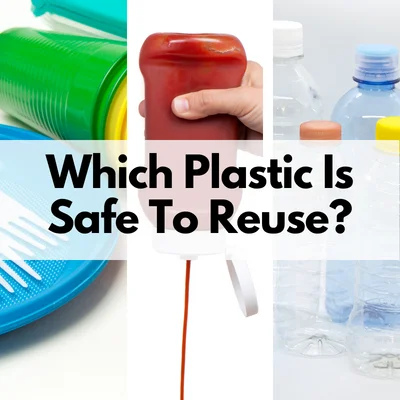
This news may be hard to bear, especially since plastic food containers are the biggest waste products in most households, making up more than half of all refuse in the United States.
As the world becomes more aware of just how dangerous plastics can be, the question now is whether a plastic food container should get repurposed for long-term storage.
The short answer is that it depends on the plastic itself. Let’s dive in.
The Truth About Plastic Food Containers
Not all plastic containers are equal. There are numerous different kinds of plastics, each with unique characteristics. While some of the containers are safe to reuse, others should get treated with caution.
Keep in mind though, if a plastic container cannot get reused, it can usually get recycled. So, don’t feel bad if you decide to throw food containers out, simply ensure that they’re correctly disposed of for recycling purposes.
As far as reusing plastic containers goes, let’s focus on the guidelines set out by the Sierra Club. According to the Sierra Club, plastic containers fall into categories 1 – 7 based on their recycling tag. We’ll go through each category and learn more about the plastic as well as get a better idea of whether the container is safe for reusing.
This post is about the safety of reusing plastic containers.
Analyzing The Safety Of Plastic Containers
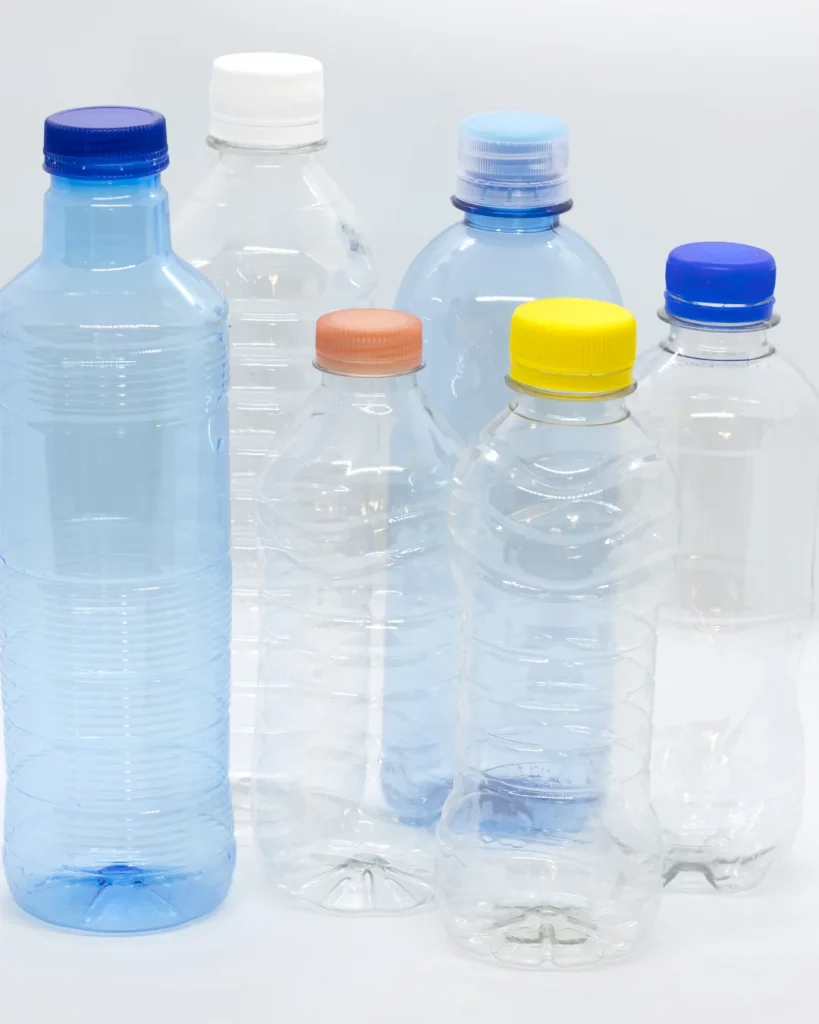
1 – Polyethylene Terephthalate (PET)
The first category is PET. These containers are most commonly used for sodas such as Coca-Cola, mineral waters, and fruit juices.
Around 25% of these bottles get recycled in the United States, demonstrating that some progress is being made in this area.
As far as reusing the bottles, however, it isn’t a good idea. The fact of the matter is that although the bottles are convenient for storing water and other liquids, PET is very difficult to properly decontaminate.
That’s why even when recycled, the bottles are shredded and reprocessed, rather than simply getting reused as is.
Recycle these bottles, don’t reuse them.
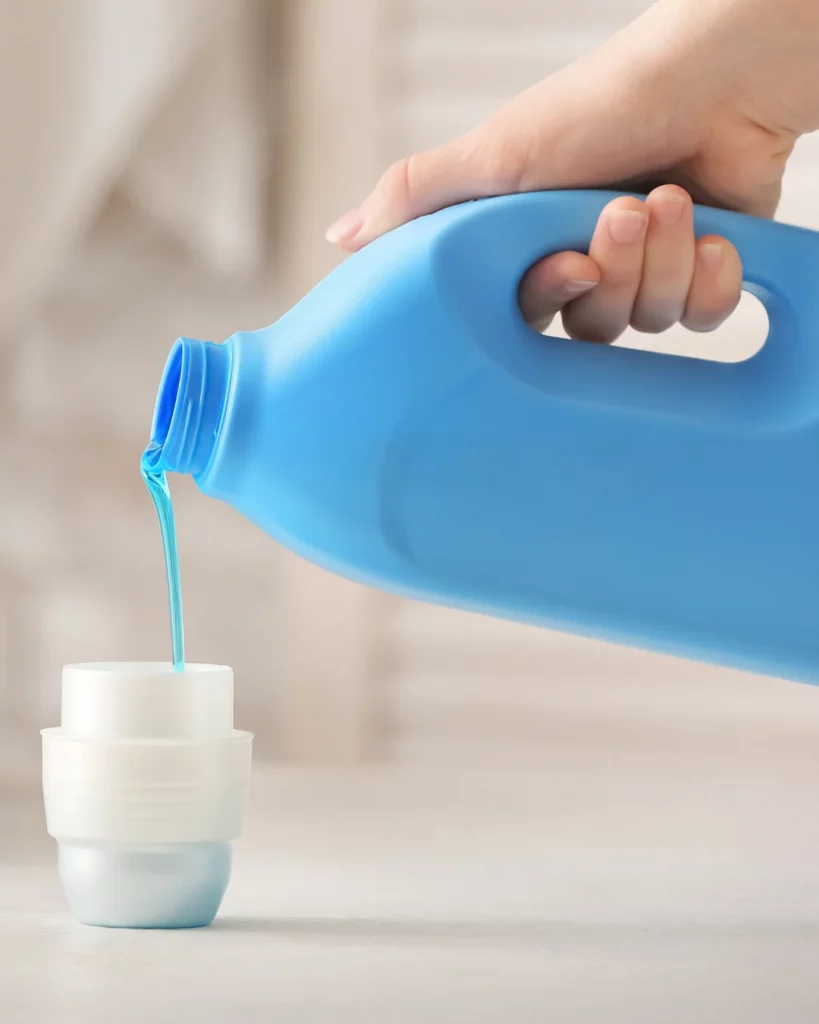
2 – High-Density Polyethylene (HDPE)
High-Density Polyethylene (HPDE) is most commonly found in milk cartons, detergent bottles, and toys.
Of all the plastics on this list, HDPE is the safest.
The plastic does not break down in low or high temperatures, shows little to no signs of leaching, and is extremely durable.
HDPE is also very recyclable, with around 35% of all containers in the US recycled.
Reuse HDPE in any way you like, including for food storage or liquids like smoothies and milkshakes.
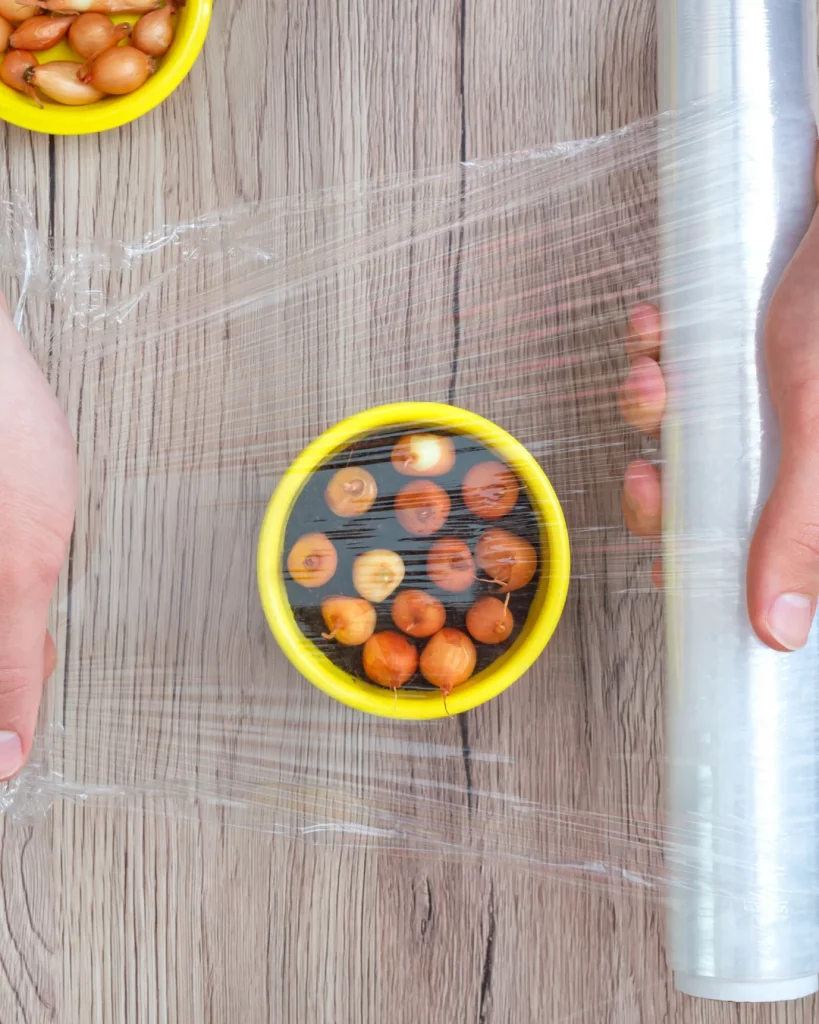
3 – Polyvinyl Chloride (PVC)
PVC is used as a clear food wrapping, but generally only for foods that spoil quickly.
There’s a good reason for this too.
PVC is referred to as “poison plastic”, which tells you everything you need to know about why it isn’t safe for reuse.
PVC leaches many harmful chemicals over its life, making it potentially dangerous for long-term food storage.
Don’t reuse PVC wrappers or containers.
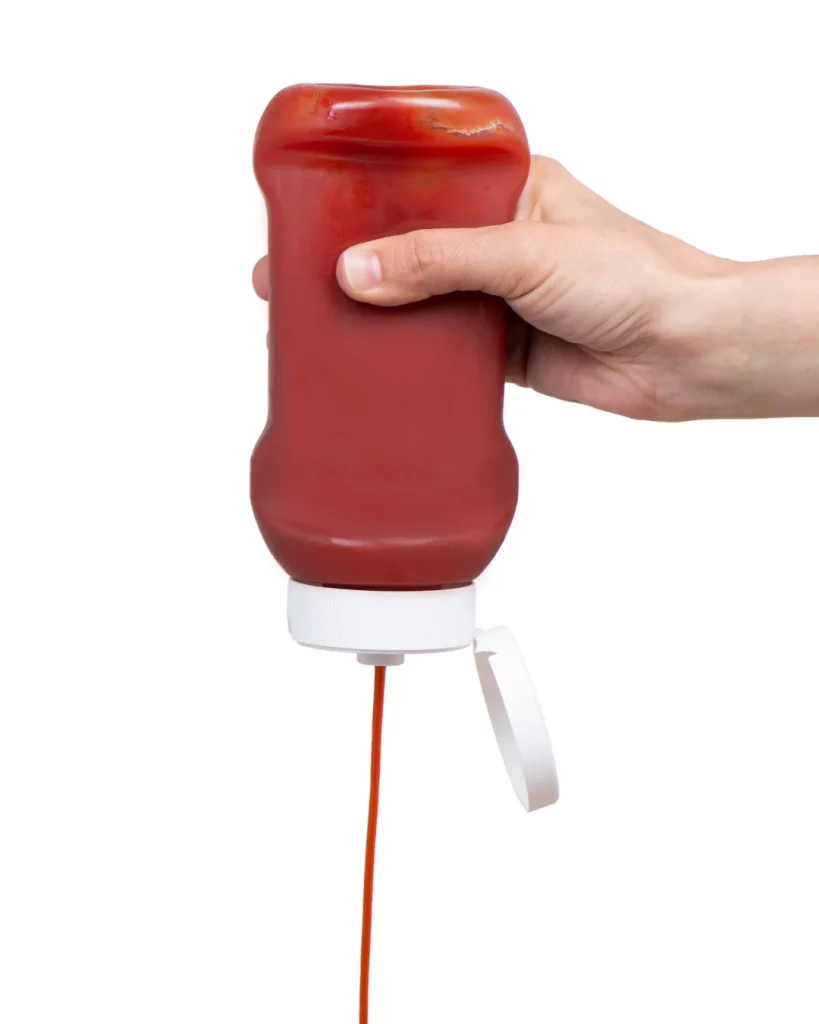
4 – Low-Density Polyethylene (LDPE)
Low-Density Polyethylene is most commonly used when making squeezable bottles, such as those that contain tomato sauce or mustard.
It’s also a popular option for cool drink bottles. Aside from HDPE, LDPE is the next safest plastic in use today.
LDPE registers a minimal reaction when exposed to heat and shows no signs of leaching, so you can even pour warm liquids inside without any concern.
Store anything from ice-cold homemade sodas to still-warm sauces in these containers.
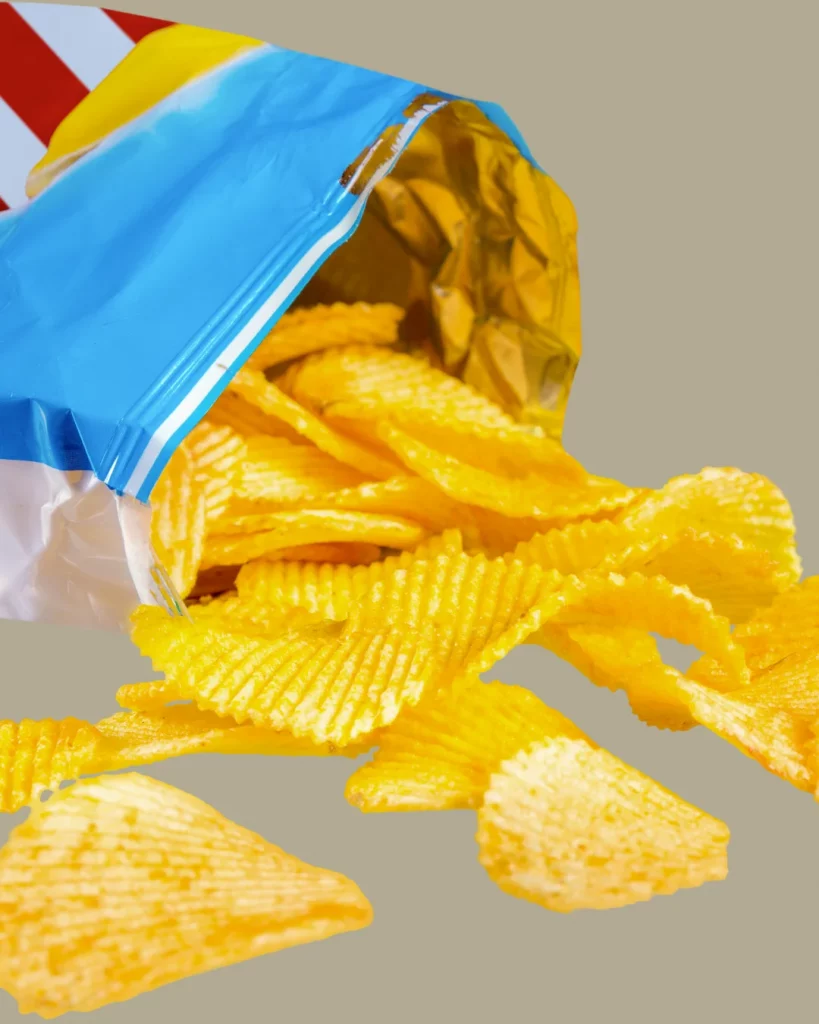
5 – Polypropylene (PP)
As it is heat resistant, hygienic, durable, and flexible, Polypropylene is utilized for numerous purposes.
You’ll find PP in crisp packets, cereal packets, margarine containers, and yogurt containers. If you haven’t already guessed, PP is safe for reuse.
It’s right up there with HDPE and LDPE as the safest plastics we use currently.
The only downside of PP is that it is more difficult to recycle than other plastics, with only 3% of containers in the US recycled.
Use PP for storing any type of foodstuff or liquids.
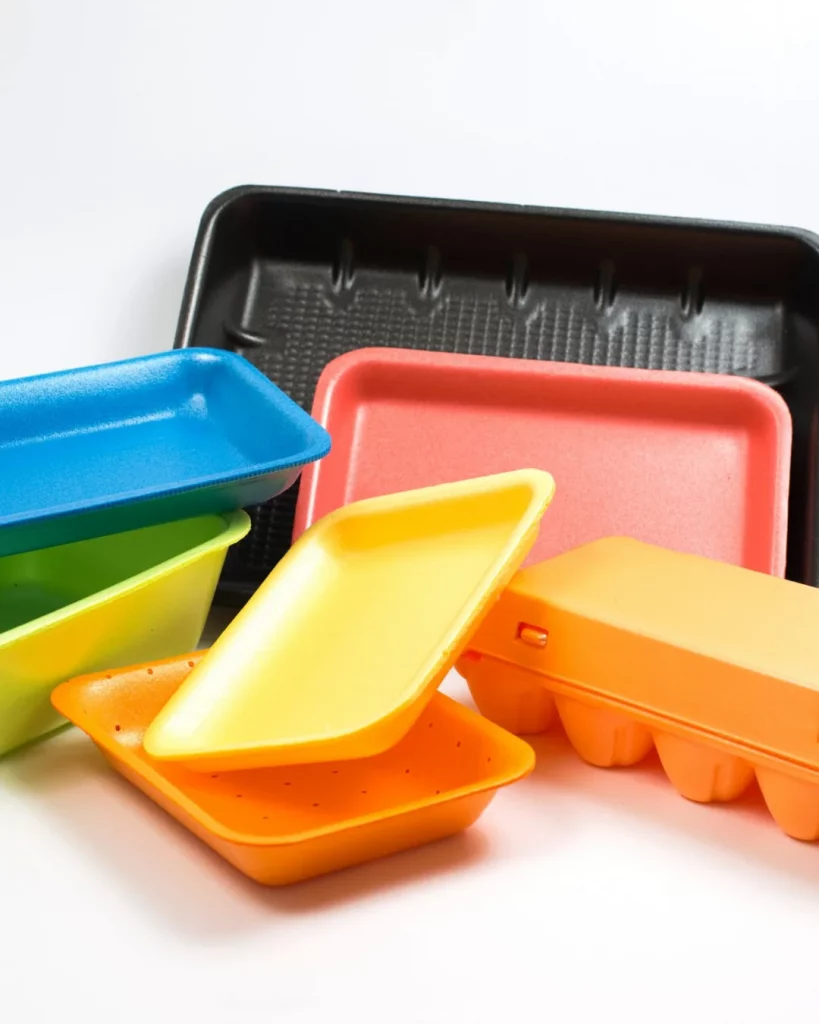
6 – Polystyrene (PS)
Now we get to the worst of the worst plastic containers.
Polystyrene is easy to manufacture, super affordable, and durable. Sadly, it is also one of the most harmful plastics in the world.
Given how cheap the substance is, there’s little to no incentive to recycle it, which results in most polystyrene containers ending up in the trash.
If you were hoping that the containers are at least safe to reuse, you’re in for a rude awakening.
Particularly when heated, PS leaches styrene into foods. Other chemicals in PS have also been linked to various human health issues, including the reproductive system.
You should avoid PS entirely, not only because it can cause you harm, but also because most recycling plants won’t accept it. Thankfully, many businesses these days refuse to use PS too.
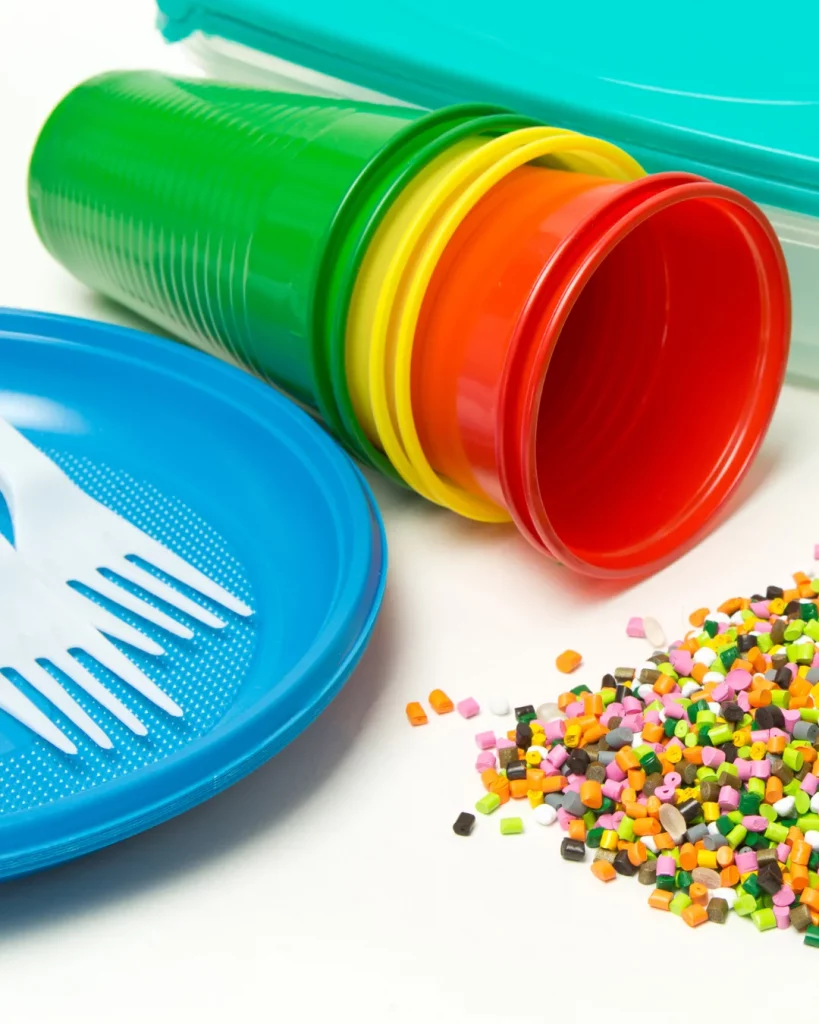
7 – Other (BPA, Polycarbonate, and LEXAN)
The last category is what you should avoid entirely, including polycarbonate.
Polycarbonate is widely known to leach Bisphenol A (BPA) into our food (and thus, into our bodies). This problem gets increasingly worse the longer the container gets reused, or when the container gets heated.
The worst-case scenario is heating liquids in polycarbonate containers.
If you’ve ever drank water out of a container and wondered why the water tastes like plastic, now you know!
Category 7 containers should get avoided at all costs. Most companies don’t use these plastics on principle these days, but there are still some that do.
Plastic Container Reuse As a Rule
Information is power. When it comes to reusing plastic containers, the more you know, the safer you can keep yourself, your family, and the planet. Keep on reusing, but be sure to make the first of the 5 R’s your number on priority in your sustainable lifestyle: reduce. Reducing our plastic not only helps us out healthwise – but it also helps out environmentally.
In the end, it’s best to be cautious about what you buy, what you choose to reuse in your kitchen, and how you recycle.
Author bio: Kiko Hu is a writer and advocate for sustainability, with a particular focus on water quality. She is passionate about exploring innovative solutions to ensure that our planet’s most precious resource is protected for future generations.
If you liked this post, you’ll definitely want to check out these other posts:
- 5 Must-Try DIY Zero Waste Swaps
- 20 Best Ways to Reuse Old Clothing with Helpful Tutorials
- 7 Reasons to Upgrade to Caraway’s Non Toxic Food Storage Set
- 10 Sustainable Ziplock Swaps That Are Way Better Than Plastic
- 25 Best Places to Recycle Old Clothes That Cannot Be Donates
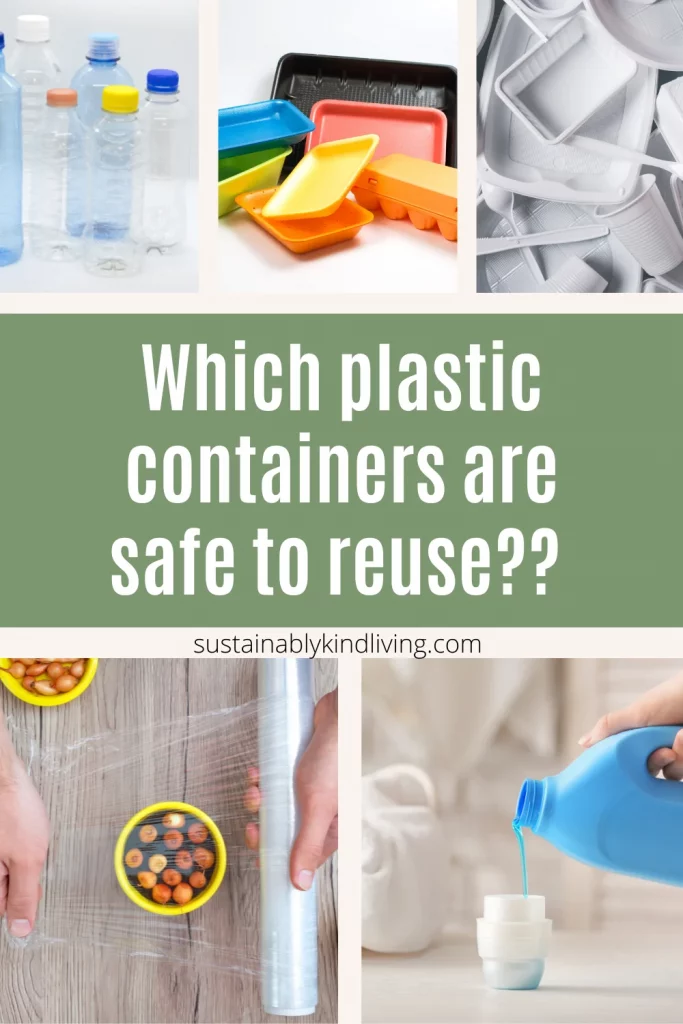
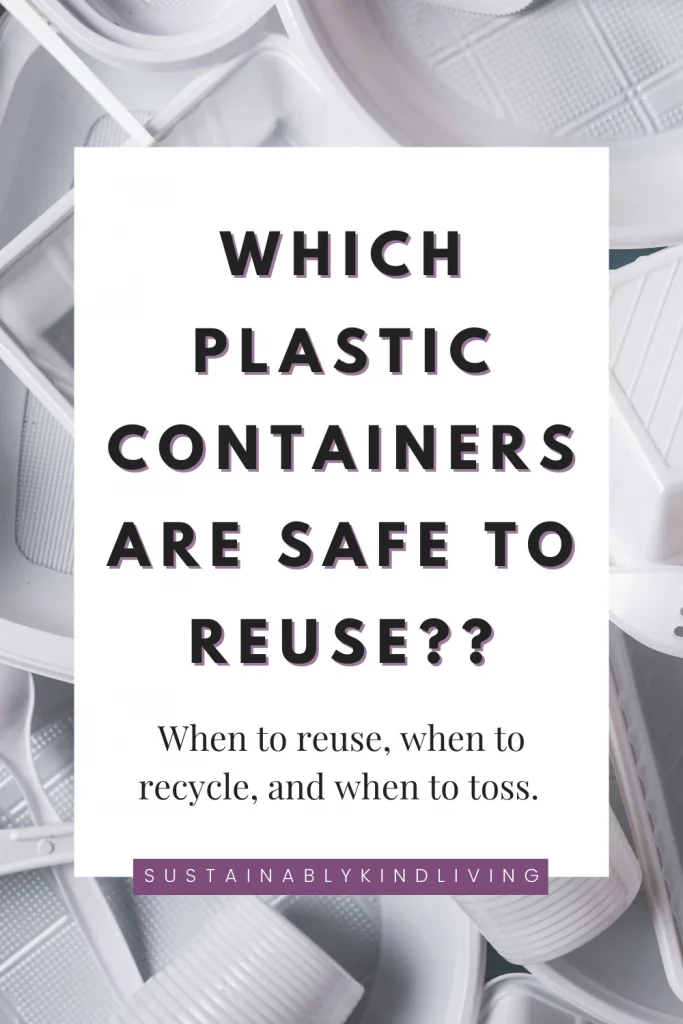
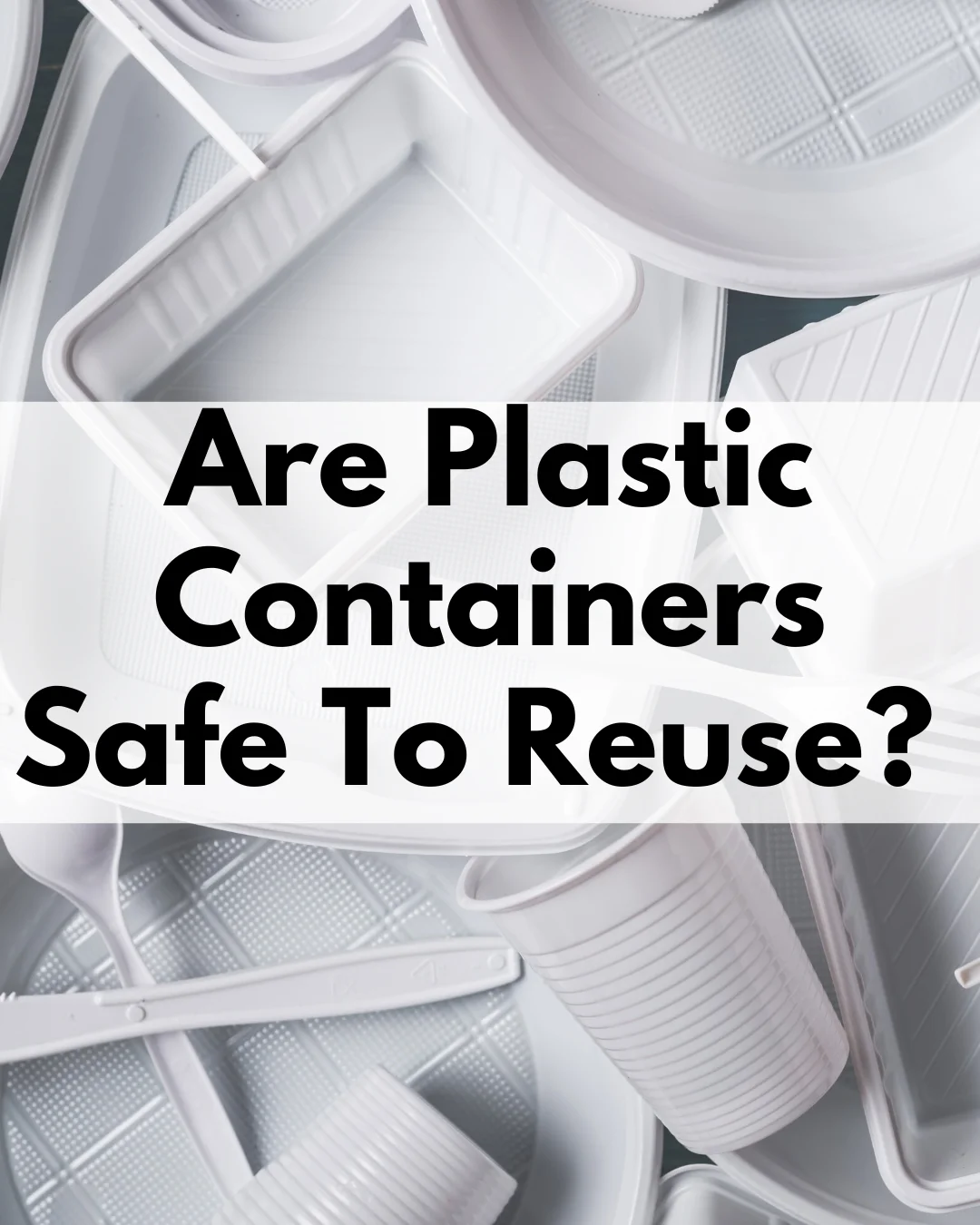
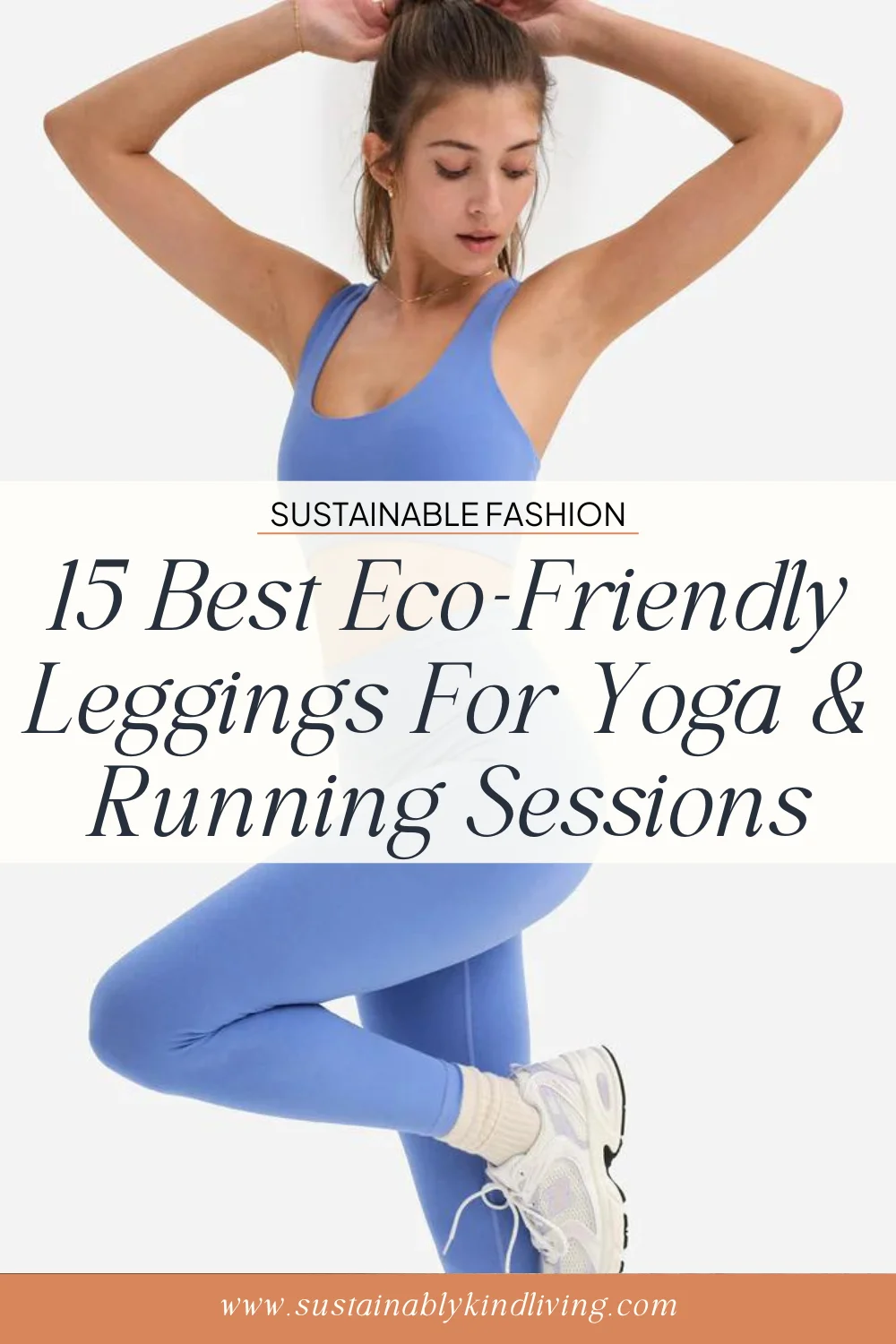
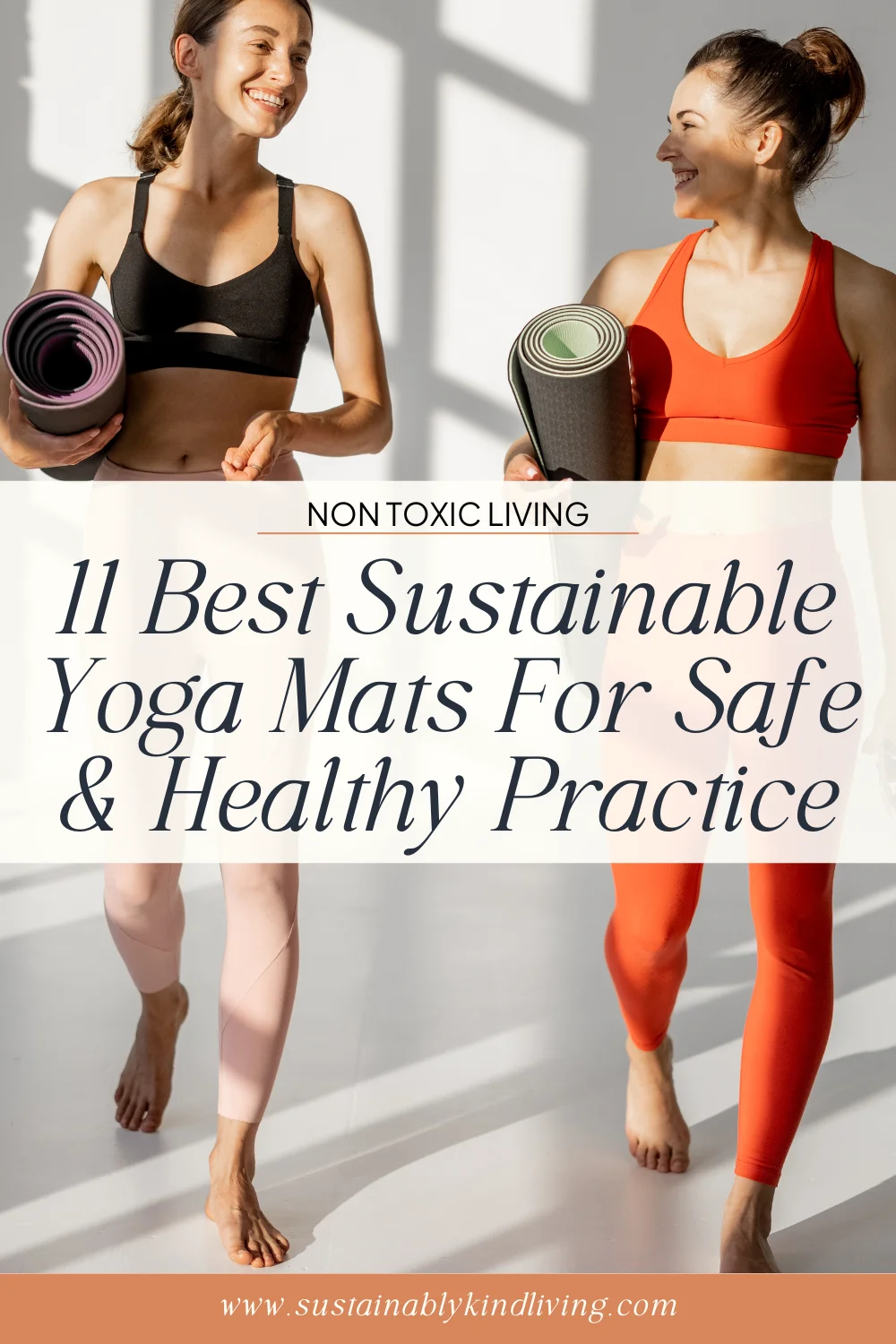
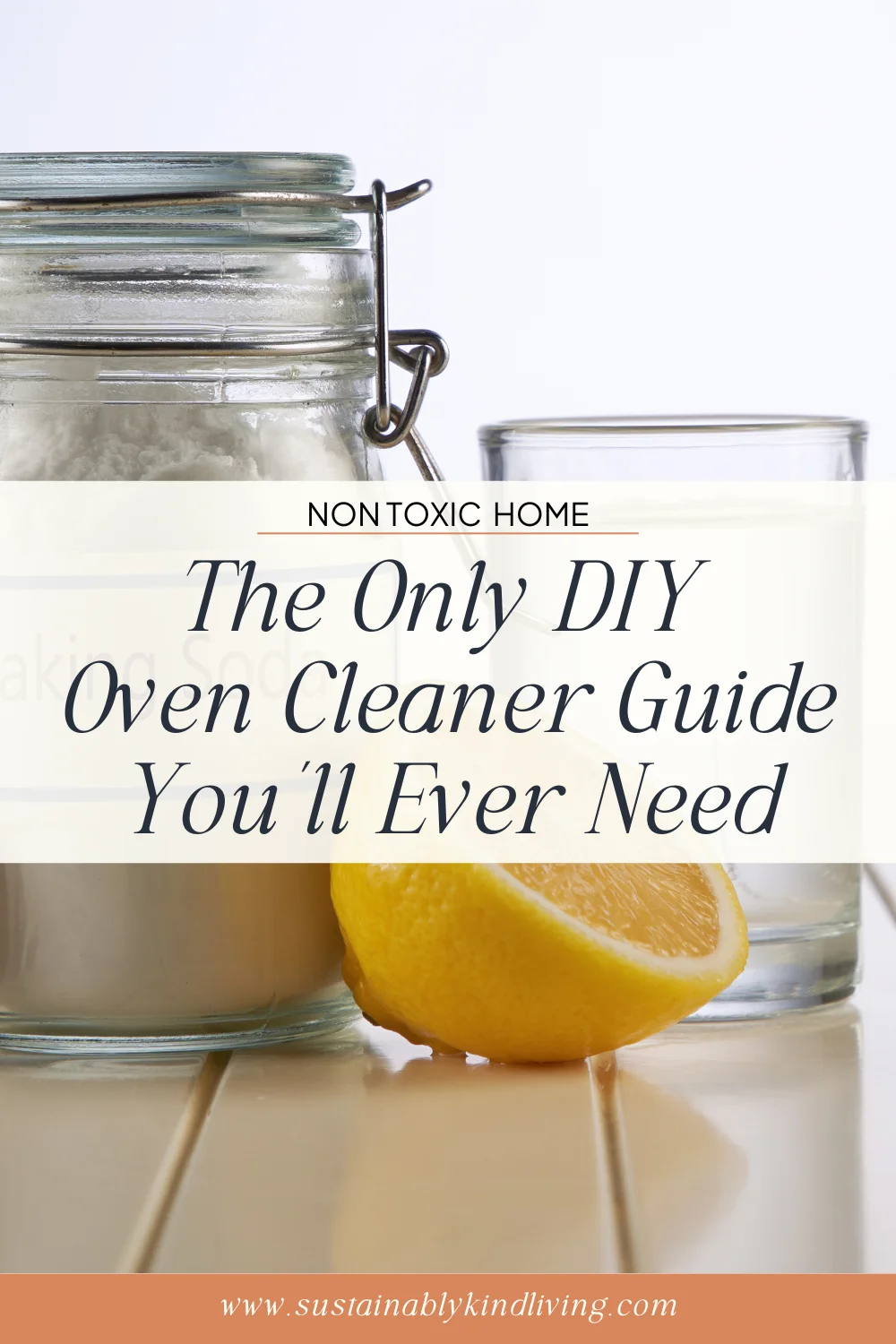
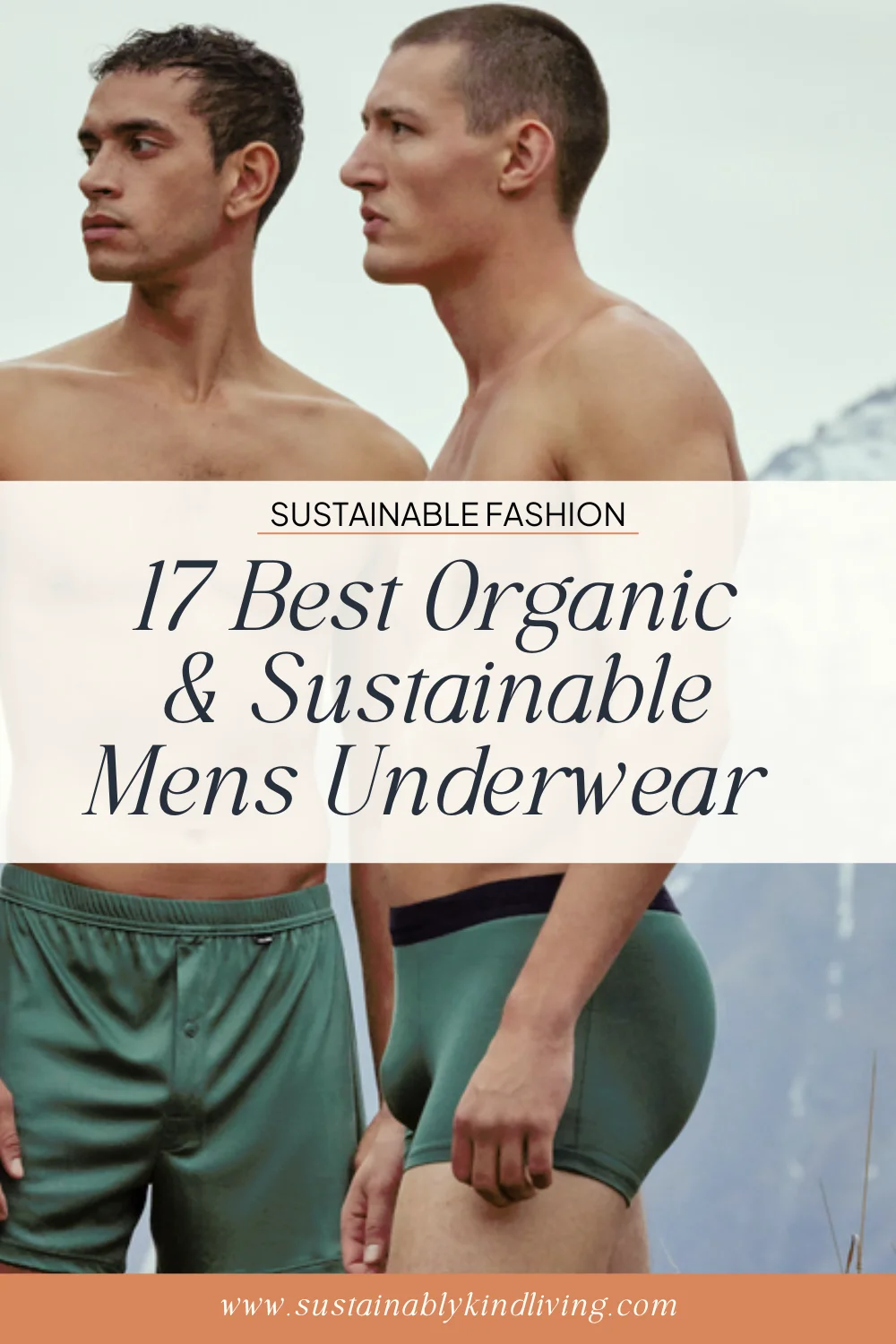
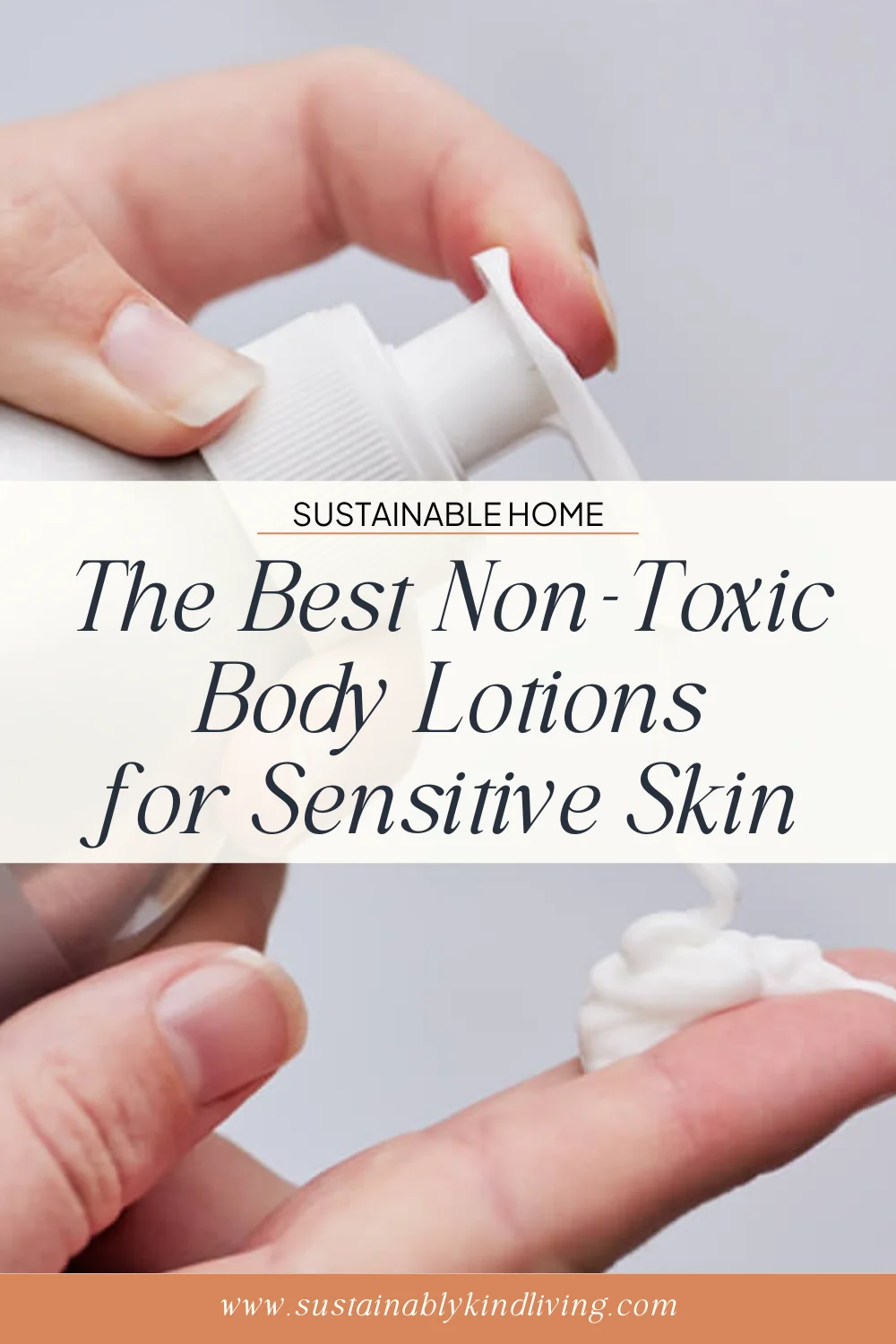


+ show Comments
- Hide Comments
add a comment